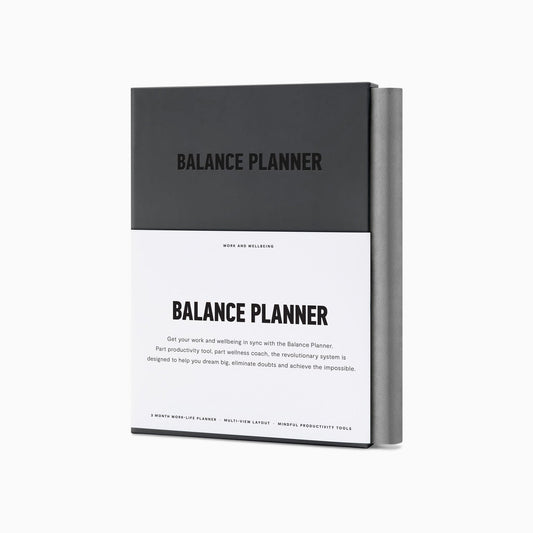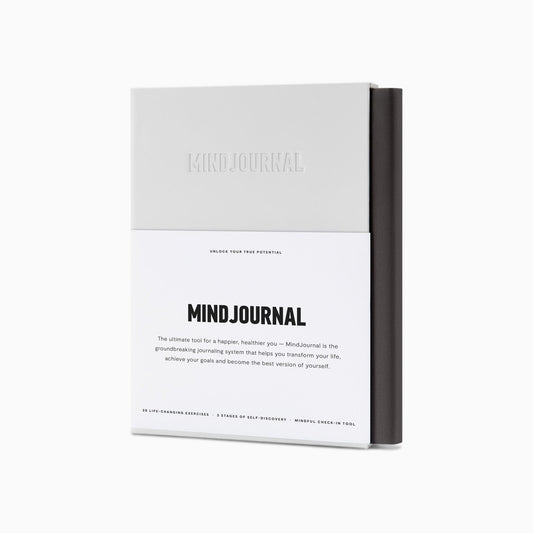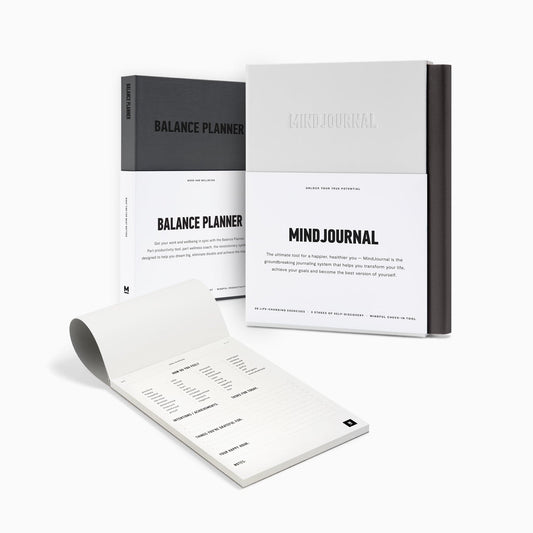Start your journey
Browse our bestsellers for a better you.
Frequently added:




by MindJournal - 7 min read

Nurturing a fulfilling romantic relationship takes work. We’re all constantly growing and evolving – and that’s a beautiful thing. But how can we make sure we’re putting enough time and energy into our romantic relationships?
Finding the balance between our partners and our own needs is the key to forging deep love and connection.
Whether your relationship is just starting out or you’ve been together for years, there are steps you can take to stay connected, find fulfilment, and enjoy lasting happiness – no matter where you are on your romantic journey.
First things first—listen. If your partner wants to talk about their day, give them your full attention. That means putting away any distractions, making eye contact, and genuinely taking in what they're saying before you respond. This simple act shows that you care and respect their thoughts and feelings.
It can be easy to miss the small things your partner does, like making your morning coffee (just right), listening to you vent about work, or just being there to give you a hug when you need it. Take a moment each day to appreciate these things, and let them know you see them.
This one sounds obvious, right? But in the busyness of everyday life, we might spend less quality time together than we'd like. By prioritising that date night out or chilled night in, you'll give yourself time to reconnect, laugh and wonder why you don't do it more.
Whether you're starting out and aiming to impress your partner with a few, *ahem*, embellishments, or you've settled into a routine of keeping things to yourself, it might be time to reconsider.
A study presented to the American Psychological Association reveals that when we're more honest with our partners, we not only enhance our relationship satisfaction but also experience improved overall well-being.
Instead of hitting next on Series Three of The Bear, try setting aside just half an hour a week for an honest and open discussion of how you're feeling and see where it takes you.
In long-term relationships, it's normal for sex drives to dip, but that doesn't mean you should let intimacy slide. It's not just about sex; physical affection matters too.
Hold hands, give hugs, kiss—whatever makes you both feel close and connected. Physical touch releases oxytocin, the "bonding hormone," which boosts feelings of intimacy and security. Don't underestimate the power of a simple touch to keep your emotional bond strong.
Shared finances are a big part of any relationship, but money can also cause tension, especially if one partner out-earns the other or has different spending habits.
By discussing finances openly, you can align your financial goals, create budgets, and set savings plans together, helping to prevent misunderstandings and resentment. Work as a team, and build trust that you're in this together.
Having goals—travel, career, family—is a great motivator. The same goes for relationships. It's important to keep checking in and reassessing your individual and shared goals to make sure you're on the same page. This way, you stay connected and aligned as a team with a shared vision of what you want life to look like.
It happens, but it's how you handle it that counts. Stay respectful, listen, take responsibility for your part, and show your willingness to find common ground. Avoid blame games and focus on finding solutions together. Remember, you're a team. If things get tense, it's okay to take a break and come back to it when you both feel ready.
Ok, rom-com but smaller. It's all about those little acts of kindness, like sending them a text saying "can't wait to see you tonight", picking up their favourite treat, or tackling a chore they hate to make their day and show them you care. It's not always about the big gestures; sometimes, the little ones mean the most.
No, really. Setting aside time for a weekly relationship meeting can help with open and honest communication. It's a great opportunity to share your thoughts, feelings, and concerns.
So grab a coffee, set an agenda, and get things off your chest. Making it a weekly routine can make both partners feel valued and heard, ultimately leading to a more balanced, harmonious, and resilient relationship.
It's no surprise that we think that taking care of your mental health is essential for a happy relationship. When you prioritise yourself, you are better equipped to manage stress, prevent burnout, and maintain physical and mental well-being.
This means you can bring your A-game to all your relationships, including with your partner. So, by looking out for yourself, you're not just benefiting you—you're also nurturing stronger connections with those you care about most.
MindJournal
£
35.00
Sale price
£
24.50
GBP
